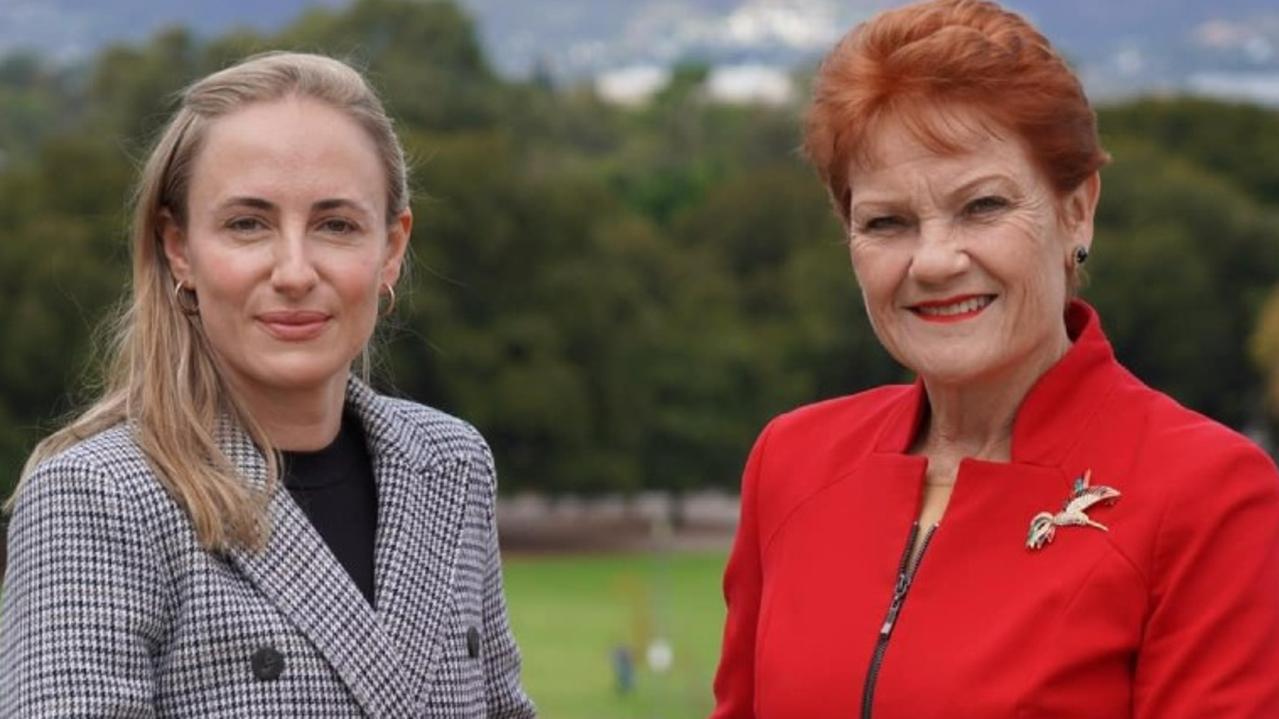Explained: Bombshell claims in parliament against Police Association candidate Wade Burns
Bombshell claims against a police officer running for head of the powerful union have been aired in parliament. Here’s everything we know.

SA News
Don't miss out on the headlines from SA News. Followed categories will be added to My News.
Bombshell claims have been aired in parliament about serving officer Wade Burns, who has been considered the frontrunner for the impending presidential election for the powerful police union.
Earlier this week, MP Frank Pangallo raised allegations under parliamentary privilege that the Police Association candidate had allegedly assaulted a female colleague at a social function in 2017 – claims Mr Burns have labelled “factually inaccurate”.
The allegations have raised questions around the state’s police secrecy laws and shaken up the upcoming union election.
Here’s everything we know so far.
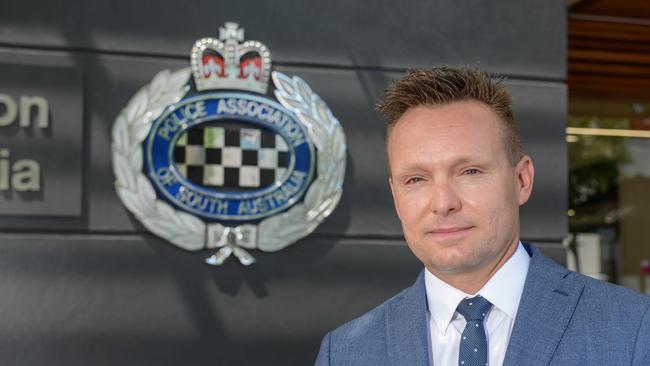
Who is Wade Burns?
Wade Burns is an experienced police officer and the current deputy president of the Police Association of South Australia (PASA), a role he has held since 2022.
The 45-year-old is the son of former police commissioner Gary Burns, who retired from the force after 46 years of service in 2015.
Since graduating in 1998, Mr Burns has worked in areas ranging from the Drug and Organised Crime Investigation Branch, STAR Group and on general patrols. Currently an Inspector, he has also worked as shift manager and operations manager across several policing districts and the communications centre.
He has previously led SAPOL’s corporate negotiations during enterprise bargaining agreements for the state’s 4700 police officers.
Mr Burns has described himself on his PASA campaign site as “infinitely qualified” for the role of president, saying he promised to bring transparency to the position.
“I’ve always believed in openness, and I’ll certainly apply it to the presidency,” he said in an email to members.
In a separate open letter circulated to members, he said “I encourage members to question all candidates”.
“Question our backgrounds and our claims and demand that we justify our assertions,” he said.
Mr Burns is also chair of the Basketball South Australia Commission and the board of Woodcroft College at Morphett Vale.
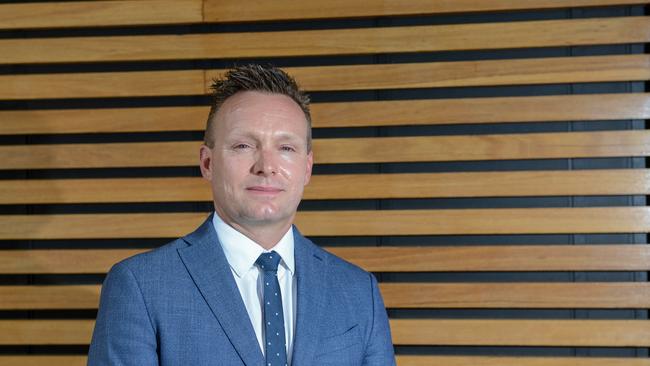
When did Mr Burns drop in rank?
Mr Burns changed rank from chief inspector to senior sergeant in mid-2017 — a drop of two positions. By 2022, Mr Burns had progressed back to the rank of inspector.
His rank progression was not included in a detailed list of his policing experience published on his campaign website, though media articles published prior to mid-2017 refer to him as “Chief Inspector Wade Burns”.
Articles published subsequent to that, including by The Advertiser and PASA’s Police Journal, refer to him as “Inspector Wade Burns”.
When contacted by The Advertiser, Mr Burns did not respond to questions about the circumstances of his drop in rank and whether it has been disclosed to members.
PASA did not respond to inquiries, while SA Police declined to comment.
What was alleged in parliament?
Less than a week after it was revealed Mr Burns dropped down from his senior rank within SA Police, independent MP Frank Pangallo aired claims under parliamentary privilege that the union candidate had allegedly assaulted a female colleague at a social function in 2017.
Mr Pangallo told parliament the incident was the reason for Mr Burns’ demotion.
“No explanation was given either by SAPOL or Mr Burns for such a major reversion of rank, nor for that matter have I ever heard of any person in a powerful position requesting a significant demotion,” Mr Pangallo said.
He told parliament Mr Burns was not criminally charged, and described the incident, which The Advertiser was previously unable to report under the state’s police secrecy laws, as the force’s “worst-kept secret”.
Mr Pangallo, a former Today Tonight journalist, told parliament the incident occurred while Mr Burns was “ironically” part of Project Equitas, a taskforce spearheaded by Police Commissioner Grant Stevens to stamp out sexual harassment and discrimination within the force.
“In one of his election posts to PASA members Mr Burns says: ‘We all know that one of the greatest demands on the leaders of today is transparency. I have always believed in openness, and I will certainly apply it to the presidency’,” Mr Pangallo said.
“In the interests of the openness and transparency Mr Burns demands, and for PASA’s membership currently deciding who will get their vote, I will summarise the worst-kept secret in SAPOL.
“In 2017, in a positive initiative driven by the police commissioner, Grant Stevens, Mr Burns, then a chief inspector, was appointed to head Project Equitas, a program designed to combat sexual discrimination, sexual harassment and predatory behaviour in SA Police, following the disturbing findings of a review by the equal opportunity commissioner.
“His team included serving male and female police officers and civilian female staff.
“Following the completion of the project, multiple complaints were lodged with SAPOL’s internal affairs against Mr Burns for egregious behaviour at a social function in a public place for invited Project Equitas and SAPOL members.”
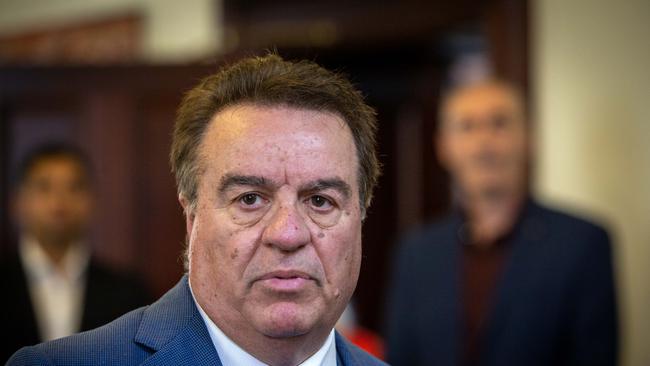
Mr Pangallo told parliament the allegations levelled against Mr Burns included “predatory behaviour” and the alleged indecent assault of a female employee, which was witnessed by several people in attendance at the function.
“It is my understanding that there was a list of agreed facts during the investigation and the demotion to senior sergeant came after Mr Burns pleaded guilty to the agreed facts,” Mr Pangallo said.
“Some time later, Mr Burns appealed his demotion where the police commissioner’s objections on integrity grounds were overruled and he was ordered to promote Mr Burns to the rank of inspector.
“Mr Burns recently sought a further promotion back to chief inspector. However, this was again rejected on integrity grounds, a decision I understand supported by Commissioner Stevens.”
Mr Pangallo questioned Police Minister Dan Cregan as to why Mr Burns was not criminally charged for his conduct or referred to the independent Commissioner Against Corruption.
He also asked whether the minister would request the police commissioner to authorise the release of the full report into the investigation and adverse findings made against Mr Burns.
Mr Pangallo aired further details in parliament the following day, urging the full investigation into the serving officer to be made public.
He claimed Mr Burns’ alleged offending “included a degree of force”.
He directed further questions to Premier Peter Malinauskas about Mr Burns’ alleged conduct, asking whether the premier believed his position as union deputy was tenable, given the allegations aired in parliament.
“Will (the premier) and his government still be able to continue to work with Mr Burns in light of the allegations … which have not been denied, should he be elected as president of PASA when voting concludes?” Mr Pangallo said.
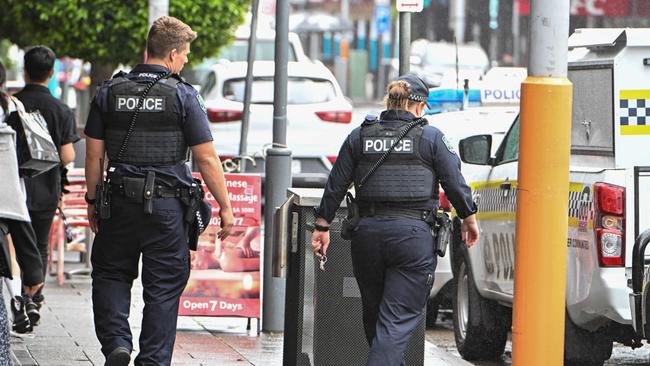
What are SA’s police secrecy laws?
Under the state’s Police Complaints and Discipline (PCD) Act, confidentiality provisions prevent the disclosure or publication of any information that could identify a person subject to a code of conduct complaint.
Internal investigations have long been kept secret by police, but currently come under the PCD act and part of the ICAC umbrella.
Only in limited circumstances will the Police Internal Investigation Section refer matters to ICAC.
In 2022, in the SACAT judgment Knight v South Australian Police, member Alexander Reilly found SAPOL was using permanent bans on releasing information to hide from public criticism.
“In line with the principles of open government … it is unlikely that parliament intended access to information related to complaints to be permanently barred from members of the public interested in reviewing the performance and integrity of SAPOL,’’ he stated in a written judgment.
He was commenting on the misuse by police of the Act to thwart a Freedom of Information application to SAPOL by a member of the public, Julie Knight, who complained of police mishandling her arrest in 2019.
Across 2022 and 2023, parliament’s powerful Crime and Public Integrity Policy Committee conducted a 15-month inquiry into the “draconian” PCD act, with the state government set to respond this year.
Premier Peter Malinauskas was reportedly “open minded to the concept of greater transparency”.
What is parliamentary privilege?
Parliamentary privilege refers to special rights and exemptions from ordinary law — including Australia’s strict defamation laws — within parliament, to allow members to speak freely on the floor without fear of legal action.
Privilege enables members to raise issues that could otherwise have them facing legal consequences, such as those covered by the police secrecy act.
While The Advertiser is unable to report on police disciplinary matters without the express permission of the police commissioner, it can report on statements made on the floor of parliament.
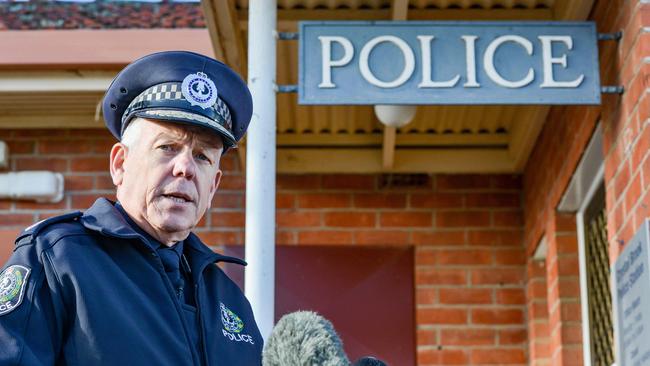
How did Mr Burns respond?
Mr Burns did not respond to multiple attempts by The Advertiser to contact him.
But, in a memo to all Police Association members on Wednesday afternoon, Mr Burns said “what was said – under parliamentary privilege – was factually incorrect”.
“Without parliamentary privilege, the disclosure of this information is in direct contravention of the Police Complaints and Discipline Act.”
Mr Burns did not specify which aspects of the claims were incorrect, but acknowledged that he had successfully challenged SA Police in the Police Review Tribunal.
He said the investigation “was not, nor was it ever, a criminal matter”.
Mr Pangallo did not claim Mr Burns — the son of former police commissioner Gary Burns — had been criminally charged.
The current Police Association deputy, who had been considered a frontrunner in the upcoming election for president of the powerful union, said the claims had been weaponised to coincide with the vote.
“It is … very clear that parliamentary privilege was used on behalf of others with a political agenda regarding the election outcome,” Mr Burns said.
“No matter who we vote for, most of us agree that our leaders should represent us all. Members, rightly, demand a president with the courage to withstand attacks.
“My campaign will continue with respect and statesmanship.”
Under Mr Burns’ email sign off, he describes himself as “best qualified for president of the association”.
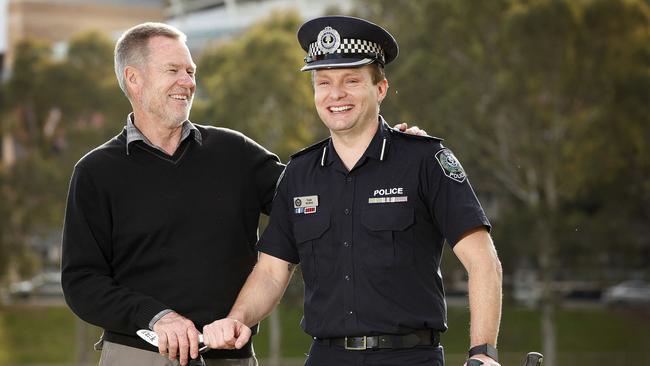
How have other ministers, the police commissioner and premier responded?
Following inquiries by The Advertiser, Police Commissioner Grant Stevens acknowledged Mr Pangallo’s questions but declined to comment further on the matter, saying a detailed briefing would be provided for the minister to respond to the issues raised.
When questioned over whether the allegations raised concerns over the state’s police secrecy rules, Premier Peter Malinauskas said he would “not comment on a union election that is underway”.
When asked for his response to the questions posed by Mr Pangallo, Police Minister Dan Cregan told The Advertiser operational staffing within SA Police was a matter for SA Police.
With regard to upcoming Police Association election, Mr Cregan echoed Mr Malinauskas’ statement, saying “the electoral processes for member-based organisations were rightly a matter for the members of that organisation”.
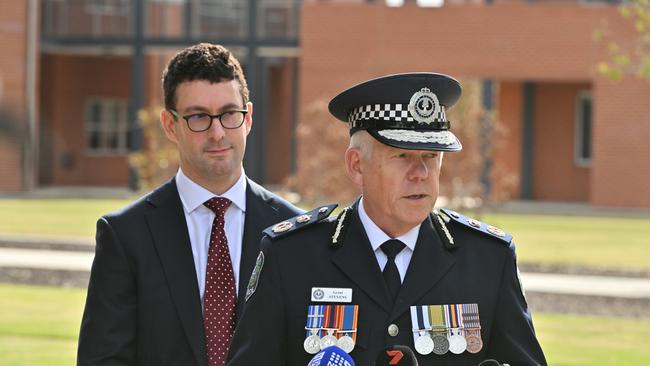
Shannon Warren, principal of Woodcroft College – of which Mr Burns is chair of the board – said “as principal I am responsible for the day-to-day operation of the college, and the board for governance matters”.
“I have referred the matters raised with me this morning to the Woodcroft College Board,” she said.
Ms Warren did not answer questions about whether the allegations had been previously disclosed to Woodcroft College.
She also did not say whether she stands by an endorsement she provided for Mr Burns’ campaign for president, which appears on his website.
Basketball SA did not respond to inquiries from The Advertiser before deadline. Chief executive Tim Brenton also provided a personal endorsement for Mr Burns’ campaign.
What is the Police Association and when is the election?
PASA is one of the state’s most powerful unions, representing more than 4600 members among SA’s rank-and-file sworn police officers.
Mr Burns is one of four candidates contesting a by-election to replace current president Mark Carroll, who will retire from the role on July 5 – eight months out from the end of his term.
Speculation about an early election was fuelled earlier this year when Mr Burns published – then quickly removed – his campaign website prior to the announcement that Mr Carroll would retire.
Also running for the top gig are Detective Brevet Sergeant Leonie Schulz, Chief Inspector Darren Cornell and Inspector Kevin Lawton.
Mr Cornell has promised to change the union’s constitution to allow fee-paying members the ability to inspect PASA’s accounts and financial records and to freeze membership fees.

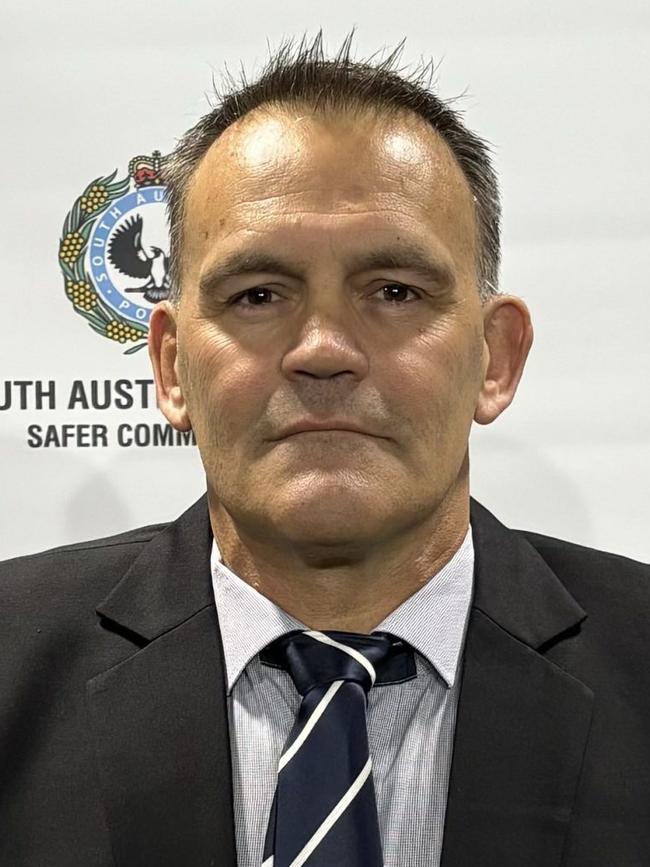
He said he would prioritise the recruitment and retention of frontline police officers and establish a biannual women’s forum to “ensure the views of all female members are able to be heard”.
As revealed by The Advertiser, Mr Cornell resigned from the union while under investigation for an alleged code of conduct breach that caused an executive assistant to lose her job.
Mr Cornell said allegations of misconduct were “not reflective of (his) time within the Police Association” and denied any knowledge of the executive assistant losing her job.
Ms Schulz, a detective in the Financial Cybercrime Investigation Branch and PASA committee of management member, would be the union’s first female president if elected.
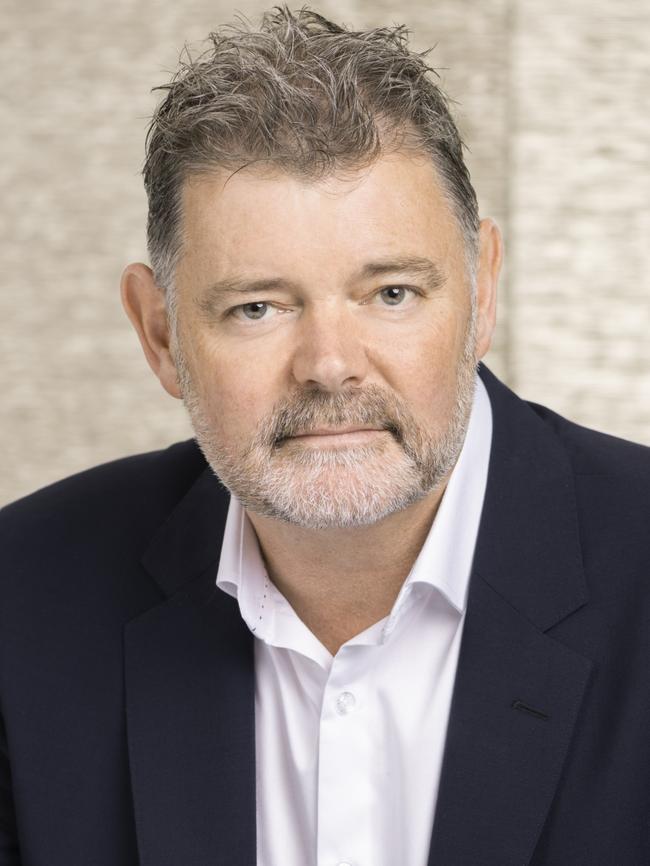

She said she would push for greater pay rises as part of current enterprise bargaining talks and advocate for country officers, female PASA members and retired officers suffering from post traumatic stress disorder.
Mr Lawton has held multiple roles in his 38 years as a police officer including in the State Crime Prevention Branch, State Intelligence Branch and Forensic Services Branch and has worked as a police prosecutor.
He was elected director of the Police Credit Union board last year and was PASA’s Metro North branch president in the late 1990s when he successfully advocated for night shift loading to be increased from 15 per cent to 25 per cent.
What happens next?
Police Commissioner Grant Stevens said he would prepare a detailed briefing for the police minister, but no timeline has been given as to when that will be handed over.
Voting for Police Association president opened on June 6 and will close at 10am on July 4, with the new boss taking the reins from Mr Carroll the following day.
More Coverage
Originally published as Explained: Bombshell claims in parliament against Police Association candidate Wade Burns



